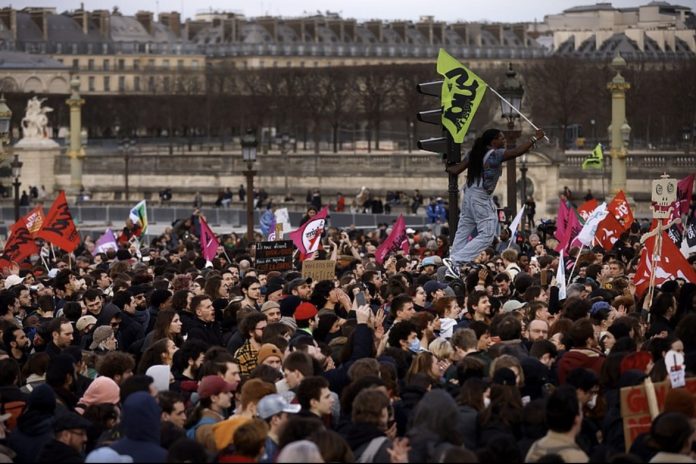After weeks of protests and weeks of debate in Parliament, French Prime Minister Elisabeth Borne yesterday announced that President Macron was invoking Article 49.3 of the French constitution in order to pass the Pension Reform Bill, which allows the government to force a bill through without a vote from lawmakers. The decision was reached after hours of meetings between Macron and several key government allies, and was announced mere minutes before the final vote was scheduled in the Assemblée Nationale. Though the bill had passed through the French senate, it was unclear if it would make it through the Assemblée.
The Bill will seek to raise France’s retirement age from 62 to 64, which Macron argued will make the French economy more competitive as well as prevent the pension from reaching a deficit.
The decision whether or not to invoke the article has been floating around for a little while now, and Macron decided on it after certain Les Républicains lawmakers announced they were unsure if they would vote in favour or against the bill, despite party leadership saying they would vote in favour.
The announcement was immediately met with protest, both inside and outside of parliament. Marches, strikes, and clashes with police took place, as they have for the past several weeks. Nationwide protests held last night resulted in 310 people being arrested, 258 of which were in Paris.

Several opposition leaders are expected to launch a vote of Non-Confidence, which would be their last chance at stopping the reform bill. If it fails to pass, the bill will go through as planned. If it passes, Macron’s government would have to resign, and he would have to name a new cabinet. If the vote of no-confidence should pass, it would be the first time since 1962.



